US Officials Urge Iranian Regime To Release Dual Nationals
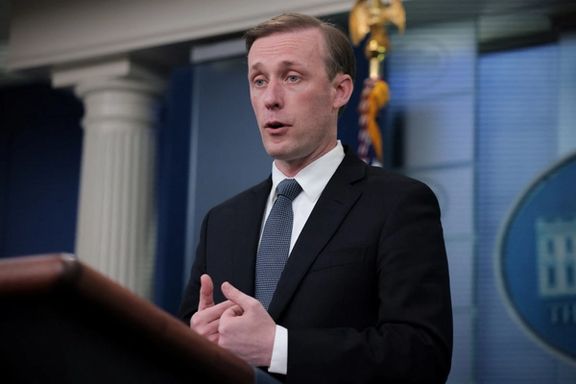
White House National Security Adviser Jake Sullivan and US special envoy for Iran Rob Malley have once again demanded the release of US nationals jailed in Iran.

White House National Security Adviser Jake Sullivan and US special envoy for Iran Rob Malley have once again demanded the release of US nationals jailed in Iran.
In a tweet on Tuesday, Sullivan pointed out that it has been "five terrible years" since Morad Tahbaz was detained in Iran.
“We again call on Iran to release immediately Morad and fellow Americans Emad Shargi and Siamak Namazi. Reuniting these Americans with their families is a top priority of this Administration,” he added.
In a similar tweet, Robert Malley also described the “wrongfully” detainment of Morad Tahbaz for five years “too many”.
“We have no higher priority than making sure that Morad and fellow wrongfully detained U.S. citizens Emad Shargi and Siamak Namazi return home and are reunited with their loved ones,” reads his tweet.

Iran routinely arrests people with Western passports and uses them as bargaining chips.
Tara Tahbaz, the daughter of Iranian-British-American Morad Tahbaz, told CNN on the fifth anniversary of her father's arrest that her family still is calling on the United States and United Kingdom to do whatever they can to bring him home.
Morad Tahbaz, 66, is a British-US-Iranian triple national who was arrested in January 2018 and sentenced to 10 years in prison on “espionage” charges.
Siamak Namazi, is a 50-year-old dual-national businessman, who was arrested and imprisoned in October 2015 on charges of "collaborating with the US government".
Emad Shargi is another Iranian-American businessman who was convicted of espionage without a trial and sentenced to 10 years in prison in 2020.

The US government has again extended protection to former Secretary of State Mike Pompeo and his top Iran aide due to persistent threats against them from Iran.
The Associated Press reported that the State Department notified Congress late last week of the extension saying that the threats to Pompeo and Brian Hook remained “serious and credible.” Hook served as the Trump administration’s special envoy for Iran.
Along with Pompeo, Hook was the public face of the US “maximum pressure” campaign against Iran following President Donald Trump’s 2018 decision to withdraw from the Iran nuclear deal known as the JCPOA. Iran has also threatened revenge against former US officials for the US assassination of Iran Revolutionary Guard commander Qassem Soleimani in Baghdad in January 2020.
Another former official with government protection is John Bolton, UN ambassador during President George Bush and National Security Advisor during Trump. The Justice Department revealed in August that an operative of Iran’s Revolutionary Guard tried to hire a hitman in the US to kill Bolton. DoJ said Shahram Poursafi, also known as Mehdi Rezayi, 45, had attempted to pay “individuals in the United States” $300,000 to carry out the killing, “likely in retaliation for the January 2020 death of Iran’s Islamic Revolutionary Guard Corps – Qods Force (IRGC-QF) commander Qasem Soleimani.”
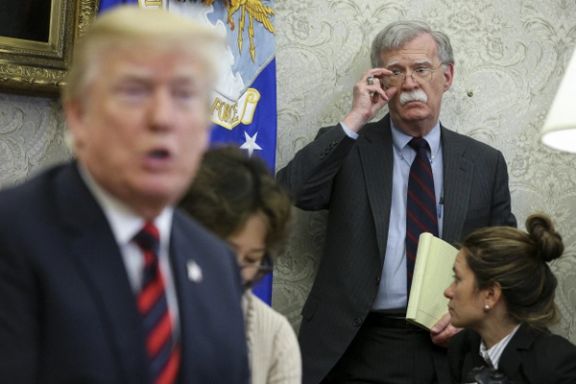
Bolton told Iran International Television that he was not surprised as the indictment was unsealed because he was kept informed “in general terms until late in 2021 when it was determined I would again get secret service protection.” But he criticized the Biden administration for not doing enough to stop the Iranian threat against former US officials.
The notifications, obtained by The Associated Press, were signed by Acting Deputy Secretary of State John Bass.
“I hereby determine that the specific threat with respect to former Secretary of State Michael Pompeo persists,” Bass wrote. He used identical language to refer to the threat against Hook.
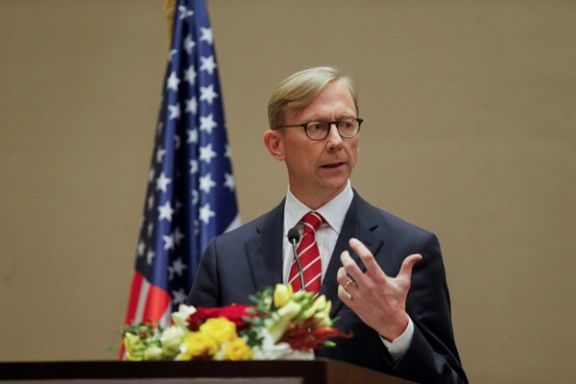
The AP reported in March 2022 that the State Department was paying more than $2 million per month to provide 24-hour security to Pompeo and Hook. The latest determinations did not give a dollar amount for the protection.
Even as the Biden administration has made those determinations and spent money for Pompeo and Hook’s protection, it has continued to press ahead with indirect talks with Iran aimed at salvaging the 2015 Iran nuclear deal that Trump withdrew from in 2018.
Those talks have been stalled for many months now and the administration has been saying since October that its focus has shifted from the negotiations to the protest movement in Iran.
In the meantime, Iran has launched a major crackdown on antigovernment protests sparked by the death of a woman in custody who was accused of violating a law requiring women to wear headscarves in public.
The State Department did not specifically mentioned Iran as the source of the threats, but Iranian officials have long singled our Pompeo, Hook and Bolton for leading the Trump administration’s policy against Iran, including designating the Revolutionary Guard Corps a “foreign terrorist organization,” subjecting it to tough economic sanctions and orchestrating the Soleimani assassination.
On the third anniversary of the Soleimani killing last week, Iranian officials renewed their threats to take revenge. Iran’s president Ebrahim Raisi in a speech on Tuesday addressed the US saying, “We have not forgotten martyr Soleimani’s blood and will never forget. They [Americans] should know that revenge for Soleimani is certain and his killers…will not have any peaceful sleep.”

Iranian media say a detained Belgian national detained in 2022 has been sentenced to 40 years in prison by the judiciary of the Islamic Republic.
According to Mizan news website, affiliated with the judiciary, Olivier Vandecasteele in addition to his long prison term must get 74 lashes for alleged “spying and cooperation with the United States, money laundering and currency smuggling.”
The Belgian aid worker had earlier denied the charges, but on Tuesday he was handed four jail terms, as well as sentences of 74 lashes and a fine.
Belgium is summoning the Iranian ambassador, Foreign Affairs Minister Hadja Lahbib said Tuesday in a statement.
Brussels announced in July that Vandecasteele, a former employee of the Norwegian Refugee Council, had been arrested in the Islamic Republic.
Based on Iranian law, he would be eligible to be freed after serving 12.5 years.
Vandecasteele has the right to appeal the verdict within 20 days, ISNA news agency reported.
He worked in Iran for humanitarian organizations for more than six years and left the country. Later, he was lured back by “a girlfriend” and was detained in February 2022.
A spokesman for Vandecasteele’s family announced in December that he has been sentenced to 28 years in prison.
Belgium and Vandecasteele’s family believe he is innocent and a victim of hostage taking by the Iranian regime. They say Tehran intends to force Brussels to release Iranian diplomat Assadollah Assadi who was sentenced to 20 years in prison in Belgium in 2021.
Asadi was accused of plotting a bomb attack on a meeting of an Iranian opposition group outside Paris.

The United States’ proclaimed concentration on Ukraine and China at the expense of the Middle East has prompted criticism from various directions.
For several months, officials in the administration of President Joe Biden have stressed that US foreign-policy priorities, reflected in staff time, have been the Russia-Ukraine conflict and calibrating policy towards the rise of China.
With the Middle East, leading US officials have said for several months that efforts to restore the 2015 Iran nuclear deal are no longer a ‘focus,’ that the current ceasefire in Yemen is sustainable, and that the US can both co-operate with the new Israeli government of Benjamin Netanyahu and keep its commitment to a ‘two state solution’ for Palestine-Israel.
Ned Price, the State Department Spokesman, was asked at his Monday press briefing about Biden’s campaign-trail statement in November, which emerged December, that the Iran nuclear agreement (the JCPOA, Joint Comprehensive Plan of Action) was “dead.” Price insisted that Biden “did not say diplomacy is dead, not at all.”
Price was then asked about a “hypothetical” case of Iran accepting US conditions for JCPOA restoration. The spokesman said that as long as Tehran lacked “any real interest in diplomacy,” then Washington would “continue to keep our focus on supporting the Iranian people...[and] Iran’s security assistance to Russia.”
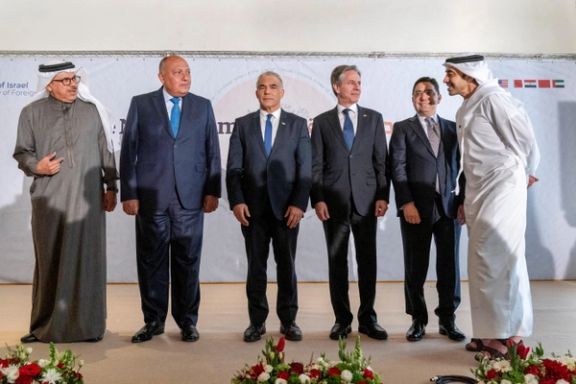
Since great-power talks to revive the JCPOA floundered in late summer with Washington and Tehran unable to bridge gaps, the US has levied additional sanctions on Iran and those trading with Iran, while Tehran has continued a nuclear program that since 2019 has exceeded JCPOA limits. The US sanctions have come under various rubrics – violation of the ‘maximum pressure’ sanctions introduced by the US in 2018 on leaving the JCPOA, ‘human rights,’ and Iran’s supply of military drones to Russia.
Iran nuclear snapback – a ‘decision’ for Europe
Price said Monday that any decision over snapback – a JCPOA mechanism that could see multilateral sanctions on Iran snap back if it violated the 2015 agreement – was a “decision for our European partners,” referring to the trio of France, Germany and the United Kingdom. All three take the US view that Iran’s supply of drones to Russia violates a clause in United Nations Security Council Resolution 2231, which endorsed the JCPOA.
But the challenge of a new right-wing government in Israel seems more pressing. Both Secretary of State Antony Biden and National Security Adviser Jake Sullivan are due in Israel this month, with US officials stressing a common commitment to prevent Iran acquiring a nuclear weapon.
This, along with an emphasis on the potential of Israel’s US-sponsored 2020 ‘normalization’ agreements with four Arab states, sits uneasily with US concern that Benjamin Netanyahu’s government is already taking steps likely to enflame the volatile situation in the occupied West Bank. Price conceded at his Monday press briefing that normalization agreements were “not a substitute for Israeli-Palestinian peace.”
Under a headline dubbed ‘The Perils of Ignoring the Middle East,’ Walter Russell Mead, professor at Bard College, argued in his Wall Street Journal column Tuesday that a “15-year decline in America’s regional influence” could be reversed by “a resolute and effective US policy to disrupt Iran’s ability to threaten its Iran neighbors…[including] if all else fails…military action to block Tehran’s nuclear program…[and] put the US back at the center of the Middle Eastern order.”
Read, a staunch supporter of the US interventions in Iraq and Syria but not Libya, argued that Biden’s current approach rested on an “impotence” that was “more expensive in the long run.”
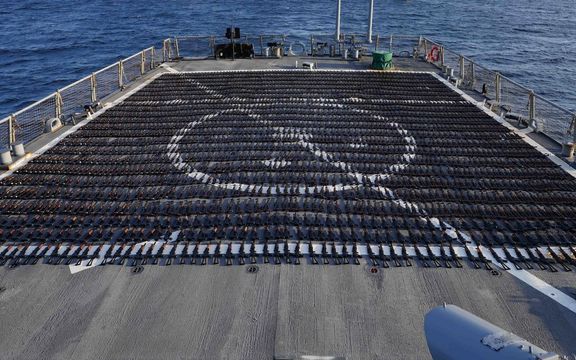
The US Navy last week intercepted a fishing vessel carrying 2,116 AK-47 assault rifles along a maritime route from Iran to Yemen, the Navy command announced.
Three US vessels were involved in the operation that seized the weapons from the vessel on a historic route used for illicit cargo traffic to the Houthi rebels in Yemen, the Navy statement said. Six Yemenis were on board the boat.
“This shipment is part of a continued pattern of destabilizing activity from Iran,” said Vice Adm. Brad Cooper, commander of US Naval Forces Central Command, U.S. 5th Fleet and Combined Maritime Forces. “These threats have our attention. We remain vigilant in detecting any maritime activity that impedes freedom of navigation or compromises regional security.”
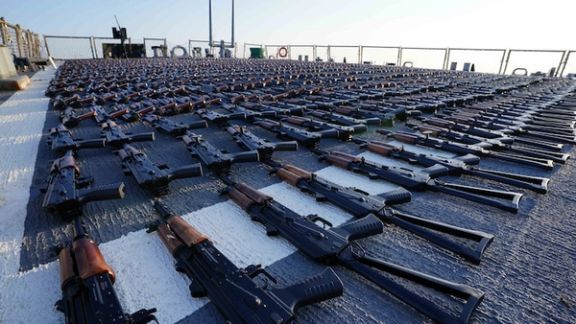
The US Navy has intercepted and captured several similar weapons cargos in the area in recent months, headed to Yemen. In early December the 5th fleet announced it had intercepted a fishing trawlersmuggling over 50 tons of ammunition, fuses and propellants for rockets in the Gulf of Oman on its way from Iran to Yemen.
On November 8, US warships intercepted more than 70 tons of ammonium perchlorate, a powerful oxidizer commonly used to make rocket and missile fuel, as well as 100 tons of urea fertilizer.
Arms sales and transfers to the Houthis in Yemen violates UN Security Council Resolution 2216 and international law.
“This shipment is part of a continued pattern of destabilizing activity from Iran,” said Vice Adm. Cooper. “These threats have our attention. We remain vigilant in detecting any maritime activity that impedes freedom of navigation or compromises regional security.”
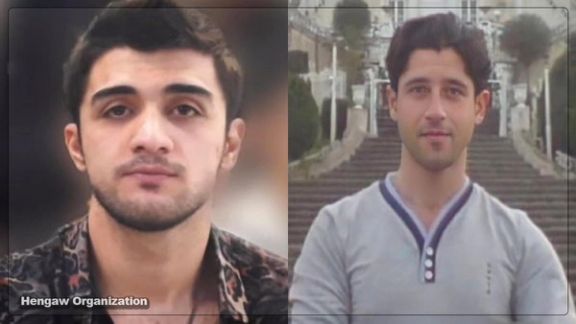
An Iranian teachers’ union has issued a statement to slam the execution of youths, demanding that the death sentences must be cancelled as soon as possible
The Coordination Council of Iranian Teachers’ Trade Associations on Tuesday also called for the resumption of fair trials for the defendants in the presence of lawyers chosen by the accused.
The statement also pointed out that Mohammad Hosseini and Mohammad Mehdi Karami, who were hanged by the regime on Saturday, were tried without going through legal formalities and the possibility of having a selected lawyer.
“However, the arrogant government thinks by hasty executions, it can cover up its inefficiency, which is the main cause of the recent uprising of those who lost their lives,” reiterated the council.
It also added that cruel verdicts are issued to create terror in the society so that the Islamic Republic can silence the voice of protesters against oppression, discrimination, and injustice.
Iran Human Rights Organization announced on Mondaythat at least 109 Iranian protesters are currently at risk of execution or facing death penalty sentences.
The Oslo-based organization said in its latest report that this figure is a minimum estimate as most families are under pressure to stay quiet, and the real number is believed to be much higher.
It also announced that at least 481 people including 64 children and 35 women, have been killed by security forces since mid-September, following the death of Mahsa Amini in police custody, which triggered the protests.